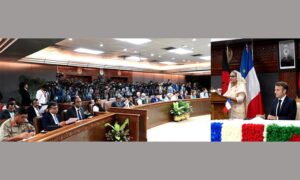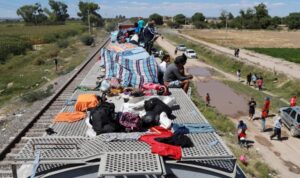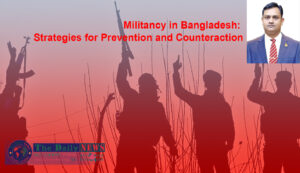
ICR Foundation | Photo Collected
Memoir
Note: This column, published in monthly instalments, marks the 50th anniversary of Bangladesh’s independence. This is the 6th instalment.
–Editor
By early December, the Mukti Bahini operations increased and became more organised. At the same time, the systematic destruction of the country and its people by the West Pakistani army, Rajakars and Al-Badr men escalated to an unprecedented level. Apparently, the nine-month massacre was intended to be carried out in three phases. In the third phase, beginning in December, the Indian army joined forces with the armed resistance launched by the Mukti Bahini against the Pakistani army and air force. This was also when the Pakistani army started to systematically abduct and execute the elite intellectuals, including doctors, engineers, professors and other professionals. In this phase, the goal was to destroy the human capital and leadership of the region so we may never stand on our feet.
On December 4, 1971, following instructions issued by Indian Prime Minister Indira Gandhi, the Indian armed forces unleashed a full-scale attack on the Pakistani army and air force in erstwhile East Pakistan. It was actually a multi-pronged attack involving the Indian air force, navy and army. Feeling desperate, President Nixon dispatched the 7th fleet to the Bay of Bengal to discourage India, only to be tailed by a larger Soviet fleet as a countermeasure in the Pacific Ocean. We did not know how much worse this would get with international powers involved in the war now.
We were sitting by the radio station at night in the dark, listening to the Voice of America, and Swadhin Bangla Betar Kendra and Akash Bani Betar Kendra in Calcutta. The Indian air force used the MiG-21 for bombing Pakistani bases hour after hour. The Pakistan air force was engaged in a dogfight in the sky with the Indian air force in the first few days. But as days went on, there were fewer and fewer Pakistani planes capable of resisting the Indian firepower.
Unbeknownst to us, a much more sinister series of events were unfolding. Al-Badr and Al-Shams paramilitary groups, along with the Pakistan army, started to send several mud-smeared microbuses around the city to abduct intellectuals from around Dhaka. With the city under strict curfew, torn telephone lines and dogfight with the Indian air force in the sky above, it was hard to connect the dots for most people. Still, many would come to our house whenever the curfew was lifted, including many faculty friends from Dhaka University. I particularly remember Mr. Giasuddin Ahmed, who was a senior lecturer of history. Handsome, always smiling, he was a quiet man of depth who would sit on the couch with others and make conversation with my father. On Sunday, December 12, Professor Giasuddin stayed for the longest time. We pleaded with him to stay but the Professor wanted to return home where his younger sisters were waiting at his residence in the university area. Reluctantly, we let him go. Unfortunately, Professor Giasuddin was abducted by Al-badr and other men from the DU campus in the morning of December 14 and subsequently killed. No one knew about this or other abductions or the scale of killings of intellectuals during these last few days—it happened quickly, mostly between December 10 and 15, 1971.
During this time, the remaining foreign diplomats packed up and left Dhaka. India and Bhutan had already announced that they recognized our country as Bangladesh on December 6. It seemed that the Pakistani air force took a severe beating by its Indian counterpart. The Mukti Bahini was relentlessly moving towards the capital city with the Indian army beside them. We were awaiting victory.
Then suddenly, on Monday, December 13, we had a close call with disaster from Al-badr men, Rajakars, and the Pakistani army. Around 4 pm, there was a loud knock. As it turned out, they were not only at our house but had also entered surrounding houses and apartment buildings in our neighbourhood.
The soldiers came upstairs and went through all our things, item by item, and threw everything on the floor. They spotted my father’s E.J. Churchill gun and exclaimed how could a Bengali own such a wonderful gun. The soldiers asked to see registration papers, which my mother swiftly produced. They snickered as they confiscated all the guns and some money and left after forty-five minutes. We were absolutely terrified. This was the first time the army had actually come inside our house. They had tailed my father’s car, put spies in front of our house and around my father’s chamber, but they had not entered our residence until then.
My mother was near hysterical thinking that her children could have been harmed. My father was upset about his guns, but by this time, darkness had descended, and we could not think about what happened in our house for too long. Some neighbours came running to tell us that several young men from our neighbourhood had been abducted. Sarwar Bhai – a neighbour who was a first year student at DU and who was teaching me swimming, two brothers from another family and many other neighbours were gone! We were shell shocked. The neighbours pleaded with my father to call the army generals and other contacts he knew. This was the first time I saw that my father had a list of some of the Pakistani army officers’ phone numbers.
Abba called to appeal on behalf of the neighbours. The answer was always the same: they would be back the next day. That night, we also heard that four brothers from the nearby Pubail house were abducted.
None of these men returned to their mothers’ bosoms ever again.
I remember the screams from women as Al-Badr went from house to house in a crazed, horrifying spree of looting, seizing, and dragging young men out of the house. They were lined up on the street, their hands tied in the back, and then ordered to climb up into the trucks. Everyone in the neighbourhood watched in silence and horror. I will never forget that when we were in bed that night, there was a huge and heavy sound in the garden, like a heavy machine gun being dropped. I ran to my elder sister. We were all scared and shaking. Again, my father came out to rescue us.
My mother, being extremely courageous, went downstairs alone and walked the perimeter of the house. When she finally returned, we were glad everyone was back in the house. In the pitch-dark curfew, I heard my parents whisper that door-to-door fighting between Mukti-Bahini and the Pakistani army might soon begin. I also heard my mother say again that we must make arrangements to leave the house immediately.
 The back of Dr Fazle Rabbee’s house overlooking the pond where boys are swimming.
The back of Dr Fazle Rabbee’s house overlooking the pond where boys are swimming.
Dr Nusrat Rabbee is a biostatistical leader in the pharmaceutical industry. She holds a PhD from Harvard University. She is a writer on the 1971 War History of Bangladesh.







